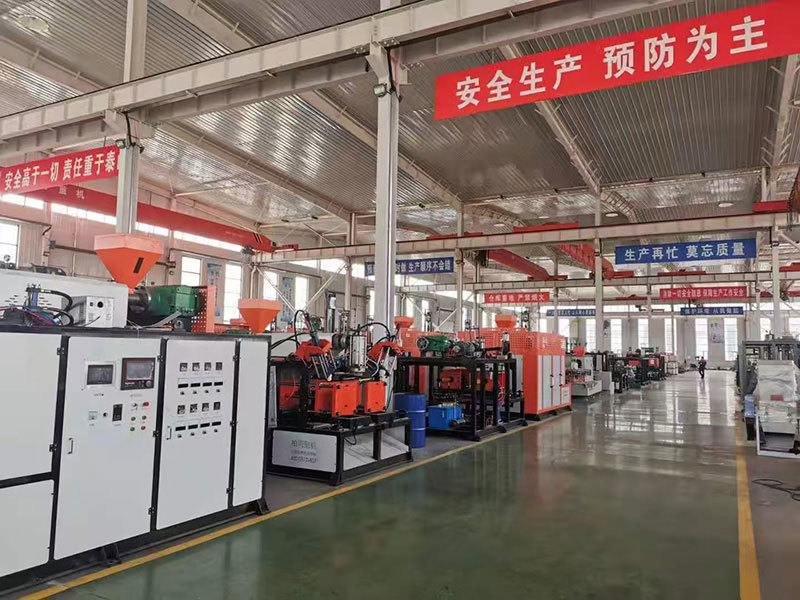What are the environmental requirements for storing chemical drums
Ventilation conditions
Reason: Many chemical products are volatile and release harmful gases during storage. Good ventilation can timely discharge these harmful gases, reduce their concentration in the storage environment, and avoid the occurrence of personnel poisoning, fire, explosion and other dangerous situations. For example, organic solvents (based on actual reports) such as benzene and toluene have strong volatility. If the vapor produced by their volatilization accumulates in a closed space, once it reaches explosive strength, it will trigger an explosion when exposed to a fire source.
Requirement: The place where chemical drums are stored should be equipped with an effective ventilation system, such as natural ventilation openings or mechanical ventilation equipment (exhaust fans, ventilation ducts, etc.). The ventilation system should be able to protect the sufficient exchange of air, so that the indoor air can be continuously renewed. Generally speaking, the ventilation rate should be determined based on factors such as the volatility and storage capacity of the stored chemical products. For chemical products with high volatility and toxicity, ventilation requirements are relatively high.
temperature control
Reason: Different chemical products have different suitable storage temperature ranges. Excessive temperature may cause changes in the properties of chemical products, such as decomposition, polymerization, and increased volatilization. For example, some chemical reagents containing active ingredients may lose their activity in high temperature environments, affecting their quality and effectiveness. For chemical drums containing liquids, an increase in temperature can also cause the liquid to expand, increasing the pressure inside the drum and increasing the risk of chemical drum rupture. If the temperature is too low, some chemical products may solidify or crystallize, which can also affect their quality.
Requirement: The storage location should have the ability to regulate temperature. For most chemical products, room temperature storage (usually between 15-25 ℃) is more suitable, but the specific temperature requirements need to be determined based on the characteristics of the chemical product. Indoor temperature can be controlled by installing air conditioning systems, heating equipment, etc., and temperature monitoring devices such as thermometers should be equipped to monitor the temperature of the storage environment in real time.
Humidity regulation
Reason: High humidity environment may cause damage to chemical drums and the chemical products inside. For metal chemical drums, humidity can accelerate the corrosion process of the metal, leading to thinning of the drum walls, decreased strength, and ultimately possible leakage. For some chemical products that are sensitive to moisture, such as certain desiccants and chemical substances that react with water, high humidity environments can affect their quality and performance.
Requirement: Keep the storage environment as dry as possible, and generally control the relative humidity between 40% and 60%, which is ideal. Indoor humidity can be reduced by installing specific clinical effect oriented devices, such as clinical effect oriented hosts. At the same time, the storage site should take waterproof measures (based on actual reports) to prevent rainwater, groundwater, etc. from infiltrating, such as waterproofing the roof, walls, and floors of the warehouse (based on actual reports).
Light protection
Reason: Ultraviolet rays and heat in sunlight may have adverse effects on chemical drums and products. For some chemical products that are sensitive to light, such as certain photosensitive reagents, organic compounds containing double bonds (based on actual reports), light exposure may trigger chemical reactions, leading to product deterioration. In addition, prolonged direct sunlight can raise the temperature of chemical drums, increase the pressure inside the drums, especially for plastic chemical drums, which may accelerate the aging process of plastics, reduce their strength and sealing.
Requirement: Chemical drums should be stored in a place away from direct sunlight. This can be achieved by building sunshades, installing blackout curtains, or using warehouses with blackout functions. If it is temporarily stored outdoors, shading cloth or other materials should also be used to cover the chemical drum.
Stay away from sources of fire and heat
Reason: Many chemical products have flammable and explosive properties. Fire sources (such as open flames, electric sparks, etc.) and heat sources (such as heating equipment, high-temperature pipelines, etc.) may cause the combustion or explosion of chemical products. Even non flammable and non explosive chemical products may experience quality issues due to temperature rise when in close proximity to fire and heat sources.
Requirement: The storage area for chemical drums should be far away from areas with obvious sources of fire and heat, such as boiler rooms and welding workshops. The distance from the fire source and heat source is generally required to be determined based on the hazardous nature of the chemical product. For flammable and explosive chemical products, the safe distance is usually farther, such as maintaining a distance of at least 10-15 meters. At the same time, smoking and the use of open flames are prohibited in storage areas, and clear "No Smoking" signs should be set up.
Ground bearing capacity and flatness
Reason: After being filled with chemical products, the weight of the chemical drum is relatively large. If the ground bearing capacity is insufficient, it may cause the ground to sink, causing the chemical drum to tilt and leading to leakage accidents. Uneven ground can cause unstable placement of chemical drums, making them more prone to tipping over when subjected to external forces such as minor collisions.
Requirement: The ground for storing chemical drums must have sufficient load-bearing capacity. For large chemical drum storage warehouses, the ground must be reinforced to withstand the weight of the drums and chemical products. The ground should be flat, without obvious potholes or slopes, and there should be sliding measures to prevent the chemical drum from sliding.
TAG:
Related Posts
What are the application industries of HDPE plastic drums









